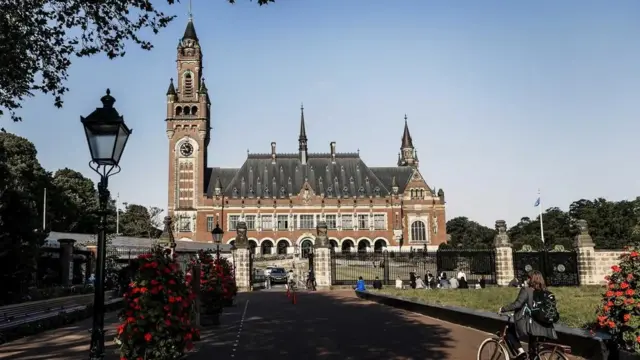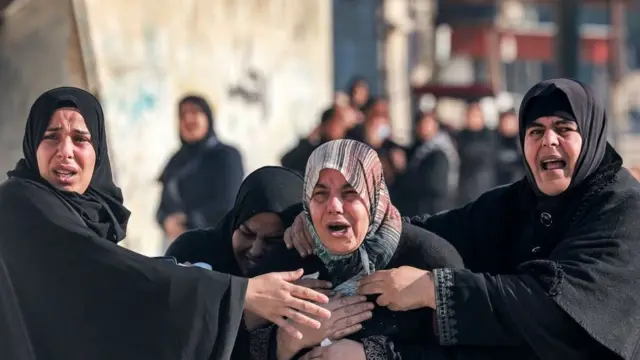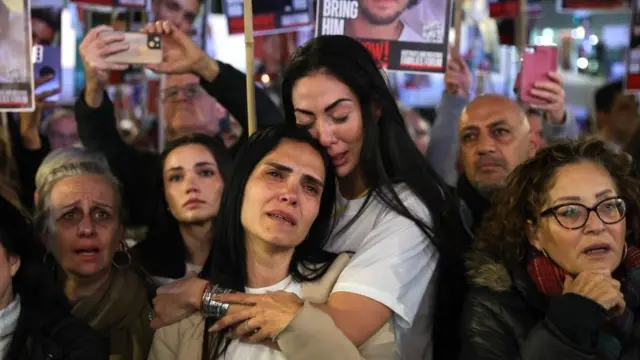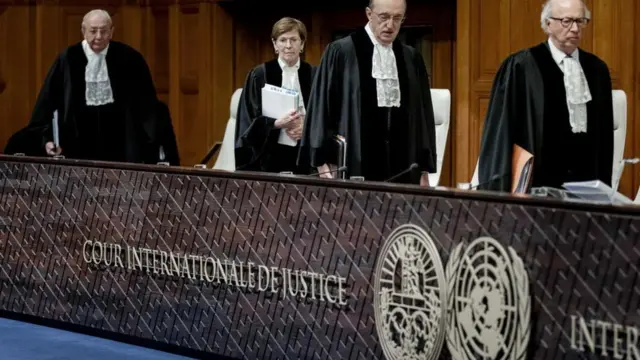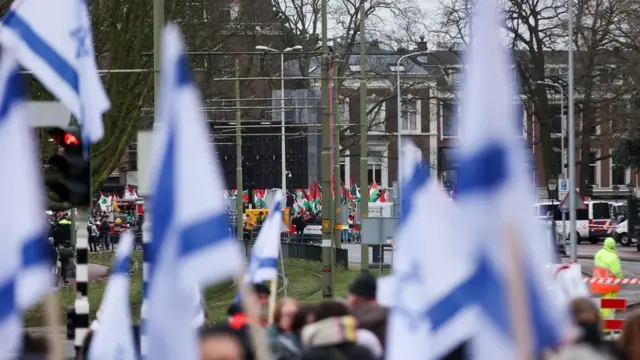The scene at the Hague this morningpublished at 09:43 GMT 26 January 2024
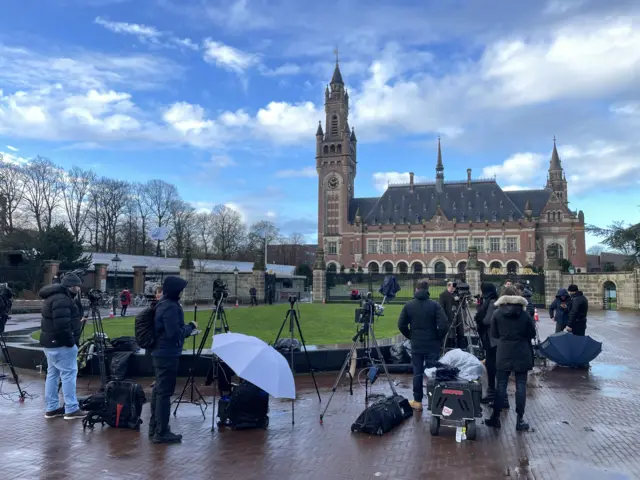
Journalists outside the Hague ahead of the hearing today.
Today's hearing is going to be a significant moment and the world's media has descended on the Hague to cover it.
We'll soon find out whether the ICJ's 17 judges will issue emergency measures ordering Israel to stop its military operations in Gaza.
As a reminder, a ruling against Israel is not enforceable by the court but would be politically significant.

